Keeping bequests in the conversation
Local
Ten years after he accepted an invitation from the late Archbishop Philip Wilson to chair a new bequests committee, retired Supreme Court judge Kevin Duggan AM QC speaks about some of the challenges and achievements of the program.
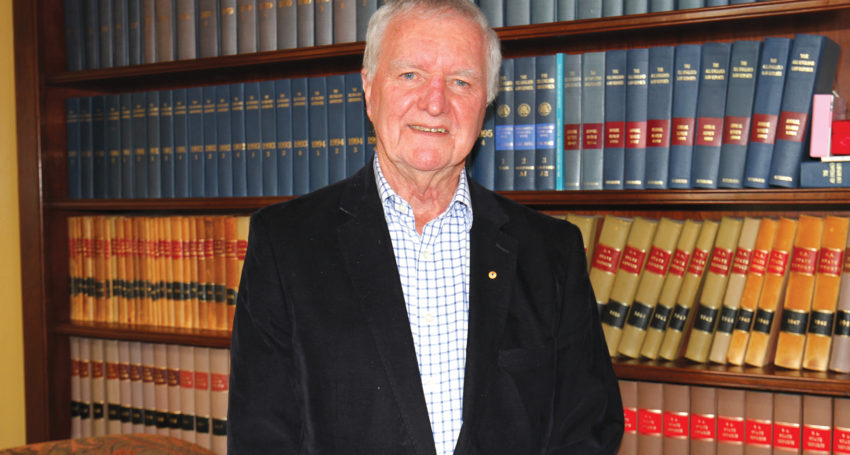
Kevin Duggan admits that he had not given a lot of thought to the topic of bequests before fellow Rostrevor College alumnus Chris McCabe put his name forward as inaugural chair of the Adelaide Archdiocese Bequest Committee.
He had presided over some probate cases during his 23 years as a judge of the Supreme Court, a few of them related to “home-made” wills where the intent of the testator required considered interpretation.
Advertisement
But as is the case for most people, the idea of talking openly about bequests did not sit easily with him.
“It’s sensitive, in the first place, so far as speaking to the person who might be a potential donor in that there must be no pressure placed on that person, especially when quite often they might be elderly,” he said.
“And, secondly, the families often have an interest in the matter and so you have to be very careful about that too.”
Mr Duggan said he had to do “a fair bit of research” once he accepted Archbishop Wilson’s invitation to chair the committee. This included looking at what was happening in other states and institutions but he quickly discovered that the “trailblazers in all of this were the Americans”.
“There is an enormous amount of charitable giving in the community in the United States, they have a grand tradition of philanthropy and foundations,” he said, adding that this was perhaps due to their inferior social security system.
Locally, he was aware of outstanding Church benefactors such as the Fennescey family and, of course, Dame Roma Mitchell, the first female Supreme Court judge and former Governor of South Australia.
Her generous bequests to a number of charities and areas of interest, from supporting the homeless to education and training of priests, was a good example of the different opportunities available through the Archdiocesan bequests program, he said.
Recognising that bequests are “very much part of modern day giving”, the committee began by looking at what universities and other dioceses were doing to tap into this competitive market.
“A lot of people would rather make a bequest than a gift during their lifetime, so I think the Archdiocese was wise to have such a focus,” he said.
The committee developed a marketing strategy to promote the bequests program, and engaged advertising guru Andrew Killey who came up with the tagline of ‘God Loves a Cheerful Giver’ (2 Corinthians 9:7).
Mr Duggan said the scripture quote had been successful in helping to raise awareness of the program in a way that did not put too much pressure on potential donors. In addition to advertising and distributing brochures to parishes, schools and Catholic legal firms, committee members visited deanery meetings to garner support from clergy for the program.
Advertisement
Another emphasis was aligning bequests to specific fundraising efforts such as Catholic Charities and the Cathedral Restoration Appeal, ensuring that any promotional material included the option of leaving a bequest.
This was part of a wider aim to develop a culture of philanthropy in the Archdiocese, which included recognising people for their generosity whether it be during or after their lifetime.
“One of the difficulties is knowing who has put something in their will; it’s a very private affair and not something that’s shouted from the rooftops,” Mr Duggan said.
“That’s why we instituted the Bishop Murphy Society in order to try and give some recognition to people who had very generous intentions as far as the Church was concerned.
“It was decided that the best way to recognise these donors was to institute a society which not only formally acknowledged bequestors but which organised various occasions on which such recognition could take place.”
Members of the Society receive a lapel badge and certificate as well as invitations to special events.
Mr Duggan admitted that when Archbishop Wilson suggested naming the society after Adelaide’s first bishop, he had no idea of how important Francis Murphy was in the history of the Catholic Church in SA.
“I confess that I knew little about Bishop Murphy, however, I soon realised what an excellent choice he was,” he said.
“It is said that the true measure of a person is how they perform under difficult and trying circumstances. In this respect Bishop Murphy is ‘Exhibit A’.”
Born and educated in Ireland, Fr Murphy was sent to minister to congregations in the northern part of England not long after his ordination in 1825. The parishioners were very poor, many of them in a desperate condition and he distinguished himself in caring for their needs.
In 1834 he set sail for Sydney and, after working there for some time, was appointed Bishop of Adelaide in 1844. He had only one priest to assist him and yet his work in building up the diocese is legendary.
“He came into an at times unfriendly non-Catholic atmosphere but the way the press responded to his death was quite extraordinary,” Mr Duggan said.
“There was even an obituary in the The Times of London which recorded that the Bishop ‘earned a popularity such as falls to the lot of few’.”
Mr Duggan said naming the Bequest Society after Bishop Murphy was a “fitting way in which to remind us of his own generosity” as well as those wanting to contribute to the works of the Church after their death.
An ongoing challenge for the Society has been identifying new members and one way of doing this has been sharing stories through The Southern Cross of key benefactors of the Church and how their legacies have assisted the works in many and varied ways.
“We need to educate Catholics about the nature of bequests and explain that the Church has a broad range of recipients that they can give to,” he said.
Mr Duggan acknowledged that the past few years had been “quite difficult” for the Archdiocese as a result of Archbishop Wilson’s court case and the pandemic.
But this had given the committee time to develop a comprehensive Bequests Policy and explore new initiatives such as promotional material for the flourishing multi-cultural communities and linking with online giving mechanisms.
While talking more openly about bequests might be a relatively new concept for the Church, Mr Duggan recalled with a chuckle his old school’s blunt approach.
“At the end of each year, we’d get this glossy annual with all the sporting teams and academic achievements,” he said.
“Then you’d get to the last page and you would see the gates of the college and it had some caption like ‘as you go through the gates for the last time, in the course of your life, when you’re making your will, please remember Rostrevor’.”



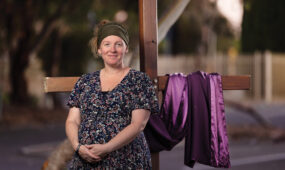
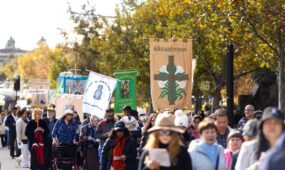
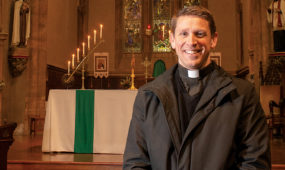
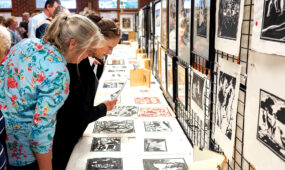

Comments
Show comments Hide comments